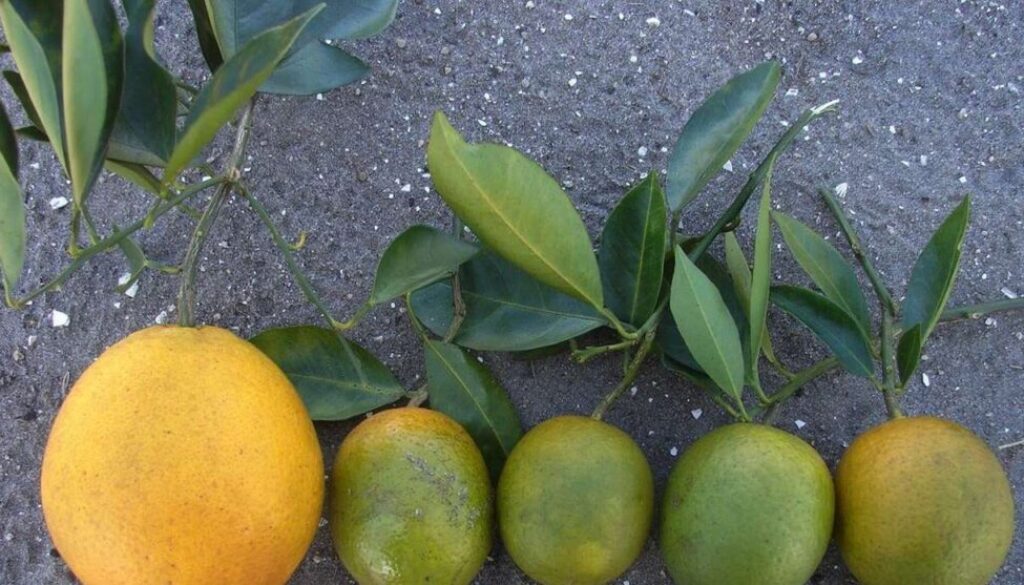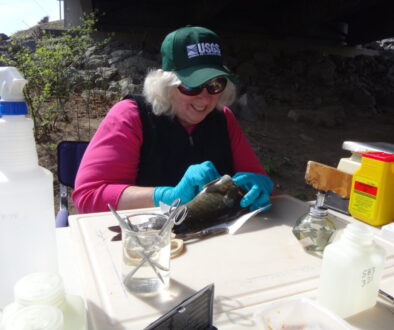Despite ban, EPA grants ’emergency’ approval for bee-killing insecticide for 10th straight year
US regulators have approved the emergency use of clothianidin on Florida citrus trees for the tenth straight year, once again allowing farmers to use the insecticide despite its known risk to endangered species and pollinators critical to the health of the food supply.
Since 2015, the Environmental Protection Agency (EPA) has had a moratorium on new uses of neonicotinoid insecticides, including clothianidin, because of evidence that the class of pesticides is linked to pollinator decline. Neonics have been shown to be particularly harmful to bees, which help pollinate important crops, such as vegetables, nuts, cotton and more.
In a 2023 analysis, the EPA found that clothianidin and other neonics are driving hundreds of species protected under the Endangered Species Act toward extinction. Neonics are banned in Europe, and the EU has proposed essentially banning clothianidin on crops imported into the EU.
Despite the concerns, the EPA has continually allowed farmers in Florida to drench the soil surrounding citrus trees with clothianidin to help fight an insect called Asian citrus psyllid, which spreads a disease the industry calls “citrus greening.” The EPA renewed that exemption last week. Florida’s citrus production has seen a steep decline over the last 20 years due largely to the dreaded disease.
“It is the no. 1 issue in citrus, probably in the world,” said Lauren Diepenbrock, an assistant professor & citrus entomology extension specialist at the University of Florida. In the past 20 years, Florida citrus production declined from 300 million boxes in 2003-04 to under 20 million boxes in 2022-23.
Clothianidin is applied to the base of trees during the dry season, so it has the best chance of being absorbed and not washing away, Diepenbrock said. Neonics are systemic pesticides, which means that plants absorb the chemicals and spread them through their circulatory system. This makes flowers, leaves, nectar, and pollen harmful to both pests and non-target insects.The neonicotinoids can also often be taken up by non-target plants.
In 2019, the EPA’s Office of the Inspector General issued a report detailing concerns about this practice. In the report, the watchdog expressed concerns about the EPA granting the emergency exemptions without properly considering impacts on human health and the environment.
Diepenbrock said neonics are some of the most effective insecticides for Asian citrus psyllid, though there are more than 16 other approved chemicals for the usage, including the neonicotinoids thiamethoxam and imidacloprid. She said clothianidin provides another option, which has been a problem in the past when suppliers were unable to provide enough other neonics to use on citrus trees.
“Do we need another neonic? Maybe not,” she said. “But we did run into a production problem (with other neonics) a few years ago.”
Nathan Donley, environmental health science director at the Center for Biological Diversity, said that EPA’s approval shows how out of sync the US is with the rest of the world. Because the application on citrus trees has only ever been granted through emergency exemptions, it has never undergone a full safety review for this use.
“When the EPA grants so-called emergency approval year after year to a pesticide that’s never undergone a full safety review there’s something fundamentally wrong about this approach,” Donley said.
In 2020, the Center for Biological Diversity petitioned the EPA to limit emergency exemptions to two years. The group also documented the EPA’s “abuse” of the program in a report, Poisonous Process: How the EPA’s Chronic Misuse of ‘Emergency’ Pesticide Exemptions Increases Risks to Wildlife.
(Featured image courtesy of USDA)
 EWG
EWG


